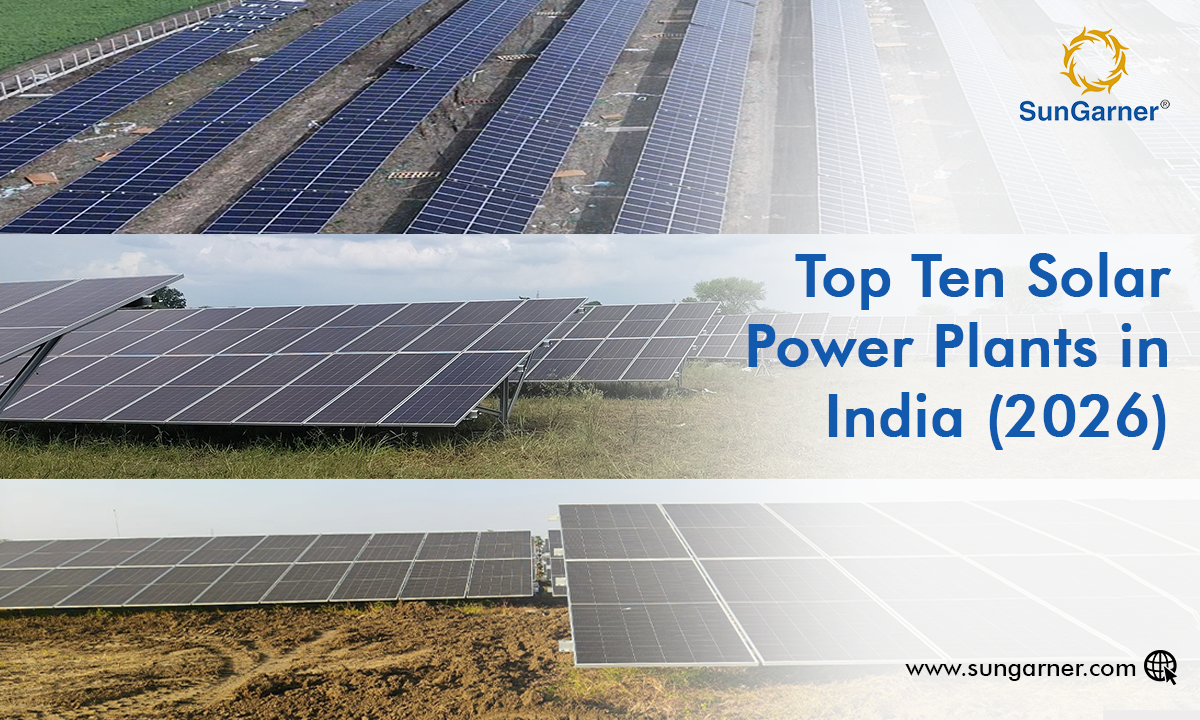Sustainable Energy: Fueling a Greener Tomorrow
SunGarner is dedicated to driving the clean energy transition in India and globally, with sustainability and the Sustainable Development Goals at the heart of all our business endeavours.
SunGarner is dedicated to driving the clean energy transition in India and globally, with sustainability and the Sustainable Development Goals at the heart of all our business endeavours.
Renewable energy is derived from sources that are both limitless and environmentally friendly. Transitioning to sustainable energy is essential for enhancing our quality of life and protecting the environment for future generations.
Sustainable energy refers to forms of energy that meet the needs of the present without compromising the ability of future generations to meet their own needs. It encompasses a range of energy sources and practices that are environmentally friendly, economically viable, and socially responsible. The primary goal of sustainable energy is to reduce reliance on fossil fuels, minimise environmental impact, and support the transition to a low-carbon economy.
Renewable Energy Sources:
Solar Energy: Harnesses energy from the sun using photovoltaic cells, solar panels, or solar thermal systems.
Wind Energy: Utilises wind turbines to convert wind power into electricity.
Hydropower: Generates electricity by using the flow of water in rivers or dams.
Geothermal Energy: Exploits the heat from within the Earth to generate electricity or provide direct heating.
Biomass: Involves using organic materials, such as wood, agricultural waste, or other biological materials, to produce energy.
Energy forms such as solar, wind, and hydropower play a significant role in our efforts to achieve a sustainable way of life.
Key Concepts in Sustainable Energy
As the world shifts toward cleaner and more sustainable energy sources, utility-scale solar power has become an affordable, reliable, and environmentally friendly alternative to fossil fuels. It plays a crucial role in reducing greenhouse gas emissions and helping to decarbonize electricity grids. SunGarner’s team of experienced and highly skilled design and engineering experts develops and operates a robust portfolio of utility-scale solar projects, contributing to a cleaner and more sustainable energy future.
Benefits of Sustainable Energy:
1. Environmental Protection
Sustainable energy sources, such as wind, solar, and hydro, significantly reduce greenhouse gas emissions, helping to combat climate change and minimise environmental degradation.
2. Economic Advantages
Investing in renewable energy can lead to job creation in manufacturing, installation, and maintenance. It also stimulates local economies by promoting new industries and infrastructure development.
3. Cost Savings
Over time, renewable energy sources can lower energy costs for consumers and businesses by reducing reliance on volatile fossil fuel markets. Initial investments in renewable technologies often result in long-term savings.
4. Energy Independence
Utilising local renewable resources reduces dependence on imported fuels, enhancing energy security and stability for countries and communities.
5. Enhanced Energy Security
Diversifying energy sources through renewables decreases vulnerability to supply disruptions and geopolitical tensions associated with fossil fuel dependencies.
6. Public Health Improvements
Reduced air and water pollution from fossil fuels leads to better public health outcomes, decreasing respiratory and cardiovascular diseases linked to poor air quality.
7. Sustainable Development
Sustainable energy promotes economic growth while ensuring that environmental resources are preserved for future generations, aligning with sustainable development goals.
8. Technological Innovation
The push for renewable energy fosters innovation, leading to the development of new technologies and improved energy efficiency.
9. Community Resilience
Local renewable energy projects can enhance community resilience by providing reliable energy access and creating local jobs, particularly in remote or underserved areas.
10. Global Leadership
Countries that invest in and promote sustainable energy can position themselves as leaders in the global transition to a low-carbon economy, attracting investment and fostering international collaboration.
Embracing sustainable energy solutions can transform how we produce and consume energy, benefiting both the planet and society.
Challenges and Solutions of Sustainable Energy
Challenges:
Intermittency of Renewable Sources: Many renewable energy sources, such as solar and wind, are intermittent and depend on weather conditions, which can lead to inconsistencies in energy supply.
High Initial Costs: The upfront investment for renewable energy infrastructure can be significant, posing a barrier for many individuals and organisations.
Infrastructure Limitations: Existing energy infrastructure may not be equipped to accommodate new renewable technologies, requiring upgrades or replacements.
Energy Storage: Efficient energy storage (battery) solutions are needed to store excess energy generated during peak production times for use when production is low.
Regulatory and Policy Barriers: Inconsistent regulations and lack of supportive policies can hinder the growth of sustainable energy projects.
Public Awareness and Acceptance: There may be a lack of understanding or resistance to adopting renewable energy technologies within communities.
Solutions:
Advancing Energy Storage Technologies: Investing in innovative energy storage systems, such as batteries and pumped hydro, can help mitigate the intermittency of renewable energy sources.
Reducing Costs through Economies of Scale: As the renewable energy market grows, increased production and advancements in technology can lead to lower costs, making it more accessible.
Upgrading Infrastructure: Governments and utilities can invest in modernising energy infrastructure to better integrate renewable sources and improve grid resilience.
Supportive Policies and Incentives: Implementing favourable policies, tax incentives, and subsidies can encourage investment in renewable energy and help overcome financial barriers.
Public Education and Engagement: Raising awareness about the benefits of sustainable energy can foster community support and acceptance, facilitating smoother transitions to renewable technologies.
Research and Development: Continued investment in research and development can lead to innovative solutions that address current challenges in the renewable energy sector.
Conclusion
By addressing these challenges with effective solutions, we can accelerate the transition to sustainable energy and create a more resilient and sustainable future.
Let’s view energy as a shared responsibility, collectively shaping a sustainable future for everyone.







.jpeg)

